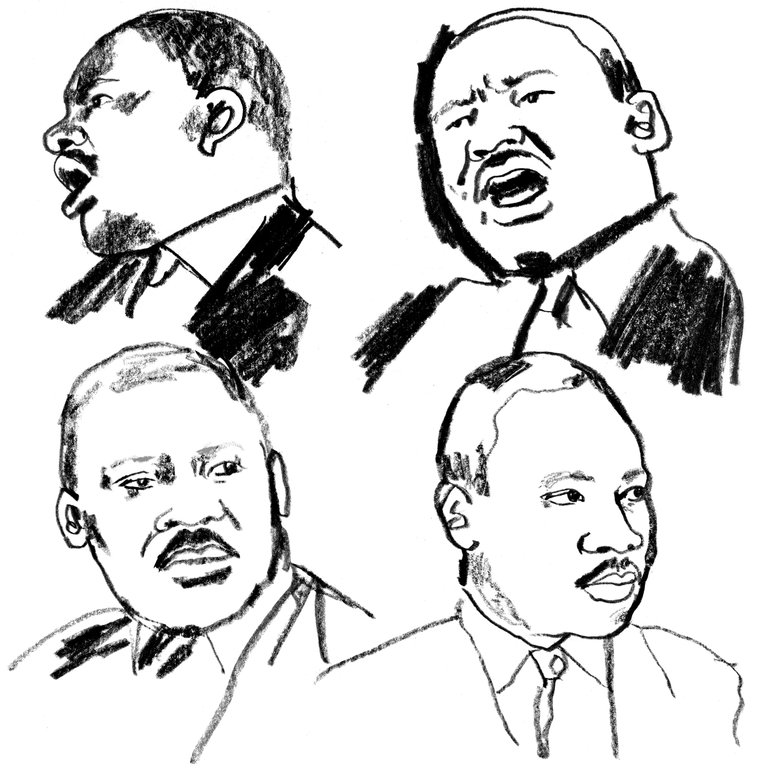Newburyport, Mass. — Every year on the third Monday of January, Americans of all races, backgrounds and ideologies celebrate the Rev. Dr. Martin Luther King Jr. He is rightly lionized and sanctified by whites as well as blacks, by Republicans as well as Democrats.
It is easy to forget that, until fairly recently, many white Americans loathed Dr. King. They perceived him as a rabble rouser and an agitator; some rejoiced in his assassination in April 1968. How they got from loathing to loving is less a story about growing tolerance and diminishing racism, and more about the ways that Dr. King’s legacy has been scrubbed and blunted.
The Dr. King we remember today is particularly at odds with his radical turn in his last years. In 1967 he denounced the Vietnam War and warned that America was courting “spiritual death.” In early 1968 he planned the Poor People’s Campaign, in which millions of impoverished Americans — black, white and Latino — would gather in Washington for an enormous demonstration. He called for $30 billion annually in antipoverty spending, and asked Congress to guarantee an income for each American. To many Americans, this sounded like socialist lunacy.
Dr. King spent his final days in Memphis, marching with striking sanitation workers. On March 28, 1968, some marchers behind him turned violent. His critics believed their argument had been proved — that Dr. King’s claims to nonviolence were so much pretense. When he was killed a week later, Senator Strom Thurmond, Republican of South Carolina, told an audience that Dr. King was “an outside agitator, bent on stirring people up.” Ronald Reagan, then governor of California, described Dr. King’s killing as a “great tragedy that began when we began compromising with law and order, and people started choosing which laws they’d break.”
But Dr. King’s legacy — the meaning of “Martin Luther King” in the popular mind — began to change as soon as the man himself left us. As groups like the Black Panthers and the Weathermen called for armed resistance, Dr. King’s peaceful methods looked more appealing. Many white Americans focused on one line of King’s “I Have a Dream” speech — that he longed for the day when his children would “not be judged by the color of their skin but by the content of their character” — and molded him into a gentle champion of colorblindness.
The King holiday was both cause and effect of this selective appropriation. Congressman John Conyers, a Democrat from Michigan, first proposed a holiday bill in 1968, and he offered the legislation virtually every year thereafter. In 1983, it finally neared passage. Though Reagan, by then president, opposed the holiday, congressional Republicans realized that endorsing the bill could help to burnish their party’s civil rights bona fides. The House passed the legislation by a wide margin.
But the debate in the Senate did Republicans no favors. Jesse Helms, Republican of North Carolina, filibustered the bill, saying that Dr. King “appears to have welcomed collaboration with Communists” and distributed a 300-page packet detailing Dr. King’s supposed treachery. Mr. Helms eventually ended his filibuster, and on Oct. 19 the Senate passed the holiday bill.
Dr. King’s opponents weren’t done. The Conservative Caucus collected 43,000 signatures on a petition urging Reagan to veto the holiday. But Reagan signed the bill anyway — in large part because, Senator Helms aside, many conservatives had “discovered,” and embraced, a useful version of Dr. King.
That embrace tightened during the battle over affirmative action. On Jan. 15, 1986, days before the first Martin Luther King Day, Attorney General Edwin Meese proposed to eliminate minority hiring goals for federal contractors. Using words that would be repeated, in one form or another, throughout the affirmative-action debate, Mr. Meese claimed that his proposal was “very consistent with what Dr. King had in mind.”
In 1996, Louisiana’s governor signed an executive order to halt affirmative action programs. “King sort of believed like I do,” said Mike Foster, a Republican. “I can’t find anywhere in his writings that he wanted reverse discrimination.” (Mr. Foster’s search apparently did not include Dr. King’s book “Where Do We Go From Here?” in which he explained: “A society that has done something special against the Negro for hundreds of years must now do something special for him.”)
This reappropriation continues today. In an attack on Colin Kaepernick, the quarterback of the San Francisco 49ers, for kneeling in protest during the national anthem, the Clemson football coach Dabo Swinney said that people like Mr. Kaepernick should “move to another country.” Mr. Swinney recommended that protesters heed Dr. King’s shining example: “I think the answer to our problems is exactly what they were for Martin Luther King when he changed the world. Love, peace, education, tolerance of others, Jesus” — as if Dr. King never criticized his country or paralyzed American cities with campaigns of civil disobedience.
In this season of political polarization, it is tempting to hope that we can unite in celebration of Dr. King. But celebrators ought to know whom they are honoring. Dr. King died for striking garbage workers and beseeched his government to protect the vulnerable. He had a message for those who would target immigrants or wall off America from the world. In a 1967 speech, he declared: “Our loyalties must become ecumenical rather than national.” Instead of policing their borders, nations should “develop an overriding loyalty to mankind as a whole.”
The alternative was unacceptable. “History is cluttered with the wreckage of nations and individuals that pursued this self-defeating path of hate.” To honor Dr. King is to follow a different path.
The New York Times
